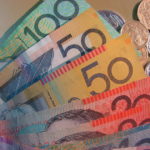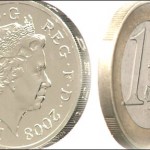 Gold advanced on Friday to settle the week close to one-month high, as investors weighed the prospects for further Fed stimulus cuts against increased physical demand. Also fanning positive sentiment, assets in the SPDR Gold Trust, the biggest bullion-backed ETF were increased for the first time in 2014, while only a stronger US dollar pressured the yellow metal.
Gold advanced on Friday to settle the week close to one-month high, as investors weighed the prospects for further Fed stimulus cuts against increased physical demand. Also fanning positive sentiment, assets in the SPDR Gold Trust, the biggest bullion-backed ETF were increased for the first time in 2014, while only a stronger US dollar pressured the yellow metal.
On the Comex division of the New York Mercantile Exchange, gold futures for settlement in February increased by 1.08% on Friday to settle the week at $1 253.60 per troy ounce. Prices touched a session high at $1 254.60, while day’s low was touched at $1 237.40 an ounce. On January 14th, the contract touched $1.254.70 per troy ounce, the strongest level since December 12th.
Gold futures settled the 5-day period 0.45% higher, after adding 0.95% in the previous week. However, the precious metal settled last year 28% lower, the steepest annual decline since 1981 as investors lost faith in the metal as a store of value.
Robust Chinese demand
On the Shanghai Gold Exchange, the trading volume for bullion of 99.99 percent purity exceeded 13 000 kilograms every day this week, in comparison with daily average of 12 782 kilograms last year.
A report showed that deliveries by the Shanghai Gold Exchange to China almost doubled in 2013.
According to data by the World Gold Council, China probably overtook India as the largest consumer in the previous year.
Fed stimulus
In a Financial Times interview, cited by Bloomberg, Narayana Kocherlakota, who votes on monetary policy this year, said: “We’re running the risk of being content with inflation running consistently below our target, which is inappropriate.”
Narayana Kocherlakotas comments provided some support to gold prices as investors are keeping a close eye on every single US economic indicator and comments from Fed officials to further gauge the size and the timing of Fed stimulus cuts.
Central bank’s policy makers said on December 18th that they will reduce monthly asset purchases to $75 billion from $85 billion, underscoring improving labor market conditions.
The central bank will probably continue to pare stimulus by $10 billion at each policy meeting before exiting the program in December, according to a Bloomberg News survey of 41 economists, conducted on January 10th. The Federal Open Market Committee is scheduled to meet next on January 28-29.
A series of overall upbeat data provided signs that US economic growth is accelerating and recovery seemed sustainable. US home construction slowed less than analysts had projected, while industrial output expanded for a fifth consecutive month. Only the consumer sentiment came at a lower-than-expected reading in January, but this was not enough to change the overall market consensus that Fed will continue tapering throughout 2014.
A report by the US Commerce Department on Friday, showed that housing starts decreased 9.8% to 999 000 annualized rate in December, after they have been revised to 1.11 million pace in the previous month, the strongest figure since November 2007. Analysts had expected that housing starts will decline to 985 000 in December. Building permits fell by 3% to a 986 000 pace.
Last year, builders began constructing 923 400 homes, which is 18.3% higher than a year ago and is the largest number since 2007, when 1.36 million houses were constructed.
At the same time, industrial production in the United States rose 0.3% in December on a monthly basis, in line with expectations, supported by overall recovery in manufacturing and mining sectors. On annual basis, industrial output expanded 3.7% in December, or 0.9% higher than the peak registered before the global recession. November’s result has been revised down to a 1.0% increase from 1.1% gain previously. In October and September, however, nation’s industrial production has been moderately revised up.
Gold drew some support, following the release of a worse-than-expected consumer sentiment data in January. January’s preliminary reading of the Thomson Reuters/University of Michigan consumer sentiment index registered at 80.4, defying analysts’ projections for an advance to 83.5 from December’s final reading of 82.5.
A stronger US dollar also weighed. The US dollar index, which measures the greenback’s performance against a basket of six major peers, advanced 0.41% on Friday to settle the week at 81.35. Prices hit a two-month high at 81.43, while days low was touched at 81.02. The contract settled the week 0.76% higher. Strengthening of the dollar makes commodities priced in it more expensive for foreign currency holders and limits their appeal as an alternative investment.
Assets in the SPDR Gold Trust, the biggest bullion-backed ETP, were increased for the first time in 2014 to reach 797.05 tons, data on the website showed. The fund has lost 41% of its holdings in 2013. A total of 553 tons has been withdrawn in 2013. Billionaire hedge-fund manager John Paulson who holds the biggest stake in the SPDR Gold Trust told clients on November 20 that he wouldn’t invest more money in his gold fund because it isn’t clear when inflation will accelerate.





